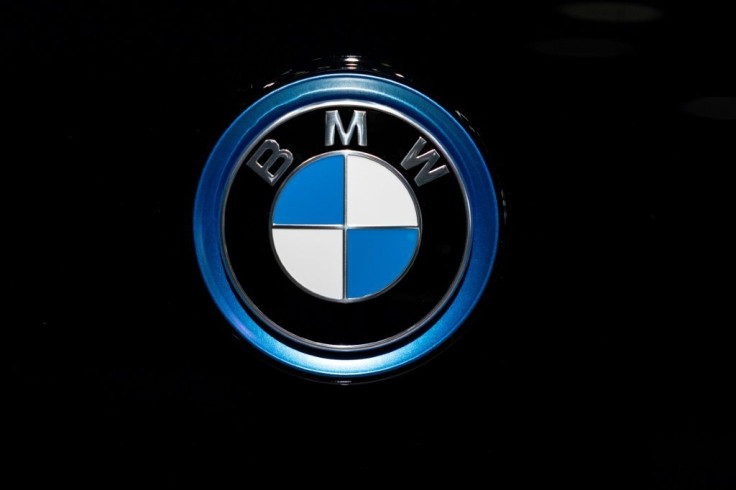As More Plants Shut Down Can The UK Auto Industry Survive Coronavirus?

KEY POINTS
- UK plants representing two-thirds of output have shut down
- The UK-European auto sector was already struggling before the onset of the virus
- Nissan and Vauxhall recently suspended production in UK
Automakers BMW and Toyota (TM) have joined Nissan and Vauxhall in suspending production at their British plants due to weak demand and a dearth of parts as a result of the coronavirus epidemic.
Jaguar Land Rover and Honda are now the only large auto manufacturers still operating in the U.K.
BMW operates a Mini factory outside Oxford, as well as facilities in Swindon and Hams Hall, in North Warwickshire, and also manufactures Rolls Royce cars at Goodwood.
Mini builds cars at the Oxford factory, engines in Hams Hall, and body parts in Swindon.
The company has about 8,000 workers in the U.K.
"Due to the rapidly evolving coronavirus pandemic we have taken the difficult decision to cease production at our production sites at Oxford and Swindon as of Monday next week for a period of four weeks until Apr. 17,” BMW stated. "The plans for Hams Hall are under development and a subsequent announcement will be made."
BMW also said its workers will be paid during the four-week shutdown, but they will be expected to take time off afterwards.
BMW will also close plants in Europe and Rosslyn, South Africa, until Apr. 19.
“We take our responsibility seriously, both when it comes to ensuring the protection and health of our employees and to achieving the best possible balance in terms of profitability,” CEO Oliver Zipse said in a statement.
Toyota plans to suspend production at its European plants, including its factory at Burnaston, Derbyshire and its engine facility in Deeside in Wales.
These two plants, which employ about 3,000 workers, will shut down for at least two weeks. Workers will be placed on paid leave.
Jaguar Land Rover, which operates plants at Castle Bromwich, Solihull and Halewood, said it was following government guidance but is keeping its factories open.
“All of our U.K. plants remain open and we plan to keep building cars until at least the end of the week, subject to the ongoing supply of parts,” the company said. “We will continue to closely monitor and review the situation as it evolves.”
The wave of plant closures raises troubling questions about the future of the U.K. auto industry.
“Business as usual is simply no longer an option for the European car industry,” wrote Theo Leggett, business correspondent at BBC. “Car factories need a steady supply of parts, delivered where they're needed, when they're needed. But the upheaval across the continent caused by the Covid-19 outbreak is disrupting those crucial supply chains.”
Leggett noted that auto sales were also falling.
“If people can't leave their homes, they can't buy cars -- even if the dealerships remain open. That's already had a major impact in Italy, Spain and France. It affects the U.K. too -- because many of the cars made here are exported to Europe,” he added.
Leggett wonders what will befall the U.K.-European auto industry next.
“The industry was already under huge cost pressure -- spending huge sums on developing zero or low emissions vehicles in order to meet extremely stringent new emissions rules, and avoid potentially huge fines,” he wrote. “A stoppage like this was the last thing the industry needed. It can weather short term disruption but the problem is, no one knows how long the disruption will last.”
The Guardian noted that auto plants accounting for two-thirds of U.K.’s output and employing 17,000 workers have stopped operating.
Mike Hawes, chief executive of the Society of Motor Manufacturers and Traders, warned that the industry is at a critical junction.
“The U.K. automotive industry is inherently strong and globally competitive but now stands on the precipice and will urgently need extraordinary measures such as these [government aid] to avoid falling over the edge,” he stated. “We are already seeing plant closures as global demand falls and supply chains are stretched. We now seek immediate dialogue with [the U.K.] government to agree [on] how such a comprehensive package of measures can ensure business continuity and support for workers.”
Some experts warn that the British auto industry may never recover.
Professor David Bailey of Birmingham Business School, commented that: “As [manufacturers] shut down, it has a cascade effect on the supply chain and some of those firms will have to start shutting down too. The fear [has] a scarring effect on the industry. If capacity is lost because of shutdowns, the longer that they go on, the more there is likely to be a permanent impact on an industry that has already been struggling.”
Professor Karel Williams at Manchester Business School said the U.K. car industry will likely consolidate following the crisis.
“It’s clear from what Volkswagen has been saying that lost sales will not be found again and there will be a massive hit in terms of loss-making in the major carmakers,” he said. “The markets will recover but the companies will be weakened just when they’re requiring large-scale investments in electrification. That will force them to rethink their portfolios of factories, models and markets.”
Williams added that some of the multinational automakers could dispose of their U.K. assets.
“The review of factories, models and markets is not going to be good for the British car industry,” Williams said. “The last thing the industry needs is a major disruption to both demand and supply. The more marginal the operations, the model and the market, the more likely things are to be cut.”
© Copyright IBTimes 2025. All rights reserved.





















